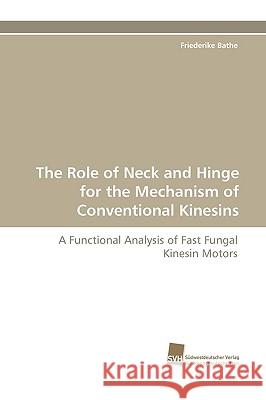The Role of Neck and Hinge for the Mechanism of Conventional Kinesins » książka
The Role of Neck and Hinge for the Mechanism of Conventional Kinesins
ISBN-13: 9783838116860 / Angielski / Miękka / 2010 / 136 str.
Conventional kinesins are molecular motors that walk along microtubules to carry out a large variety of cellular transport processes. The conventional kinesin of the filamentous fungus Neurospora crassa is 3-4 times faster than its animal relatives. Its neck domain displays characteristic properties that is also reflected in a specific sequence pattern. In the present work the functional roles of the specific neck and hinge domains for mechano-chemistry, dimerization and regulation of fast fungal kinesins are investigated. To address this issue, mutant protein constructs were generated, and characterized in terms of oligomerization, motility and kinetic properties. The results show that the specific neck and hinge regions are not critical for the basic mechanism of fast fungal kinesins. However, they play an important role for the regulation of the motor in a dimerization-based mechanism. In addition, the specific neck sequences may have evolved to fine-tune kinesins processivity by combining tight structural connection of the head domains with a flexible tether that facilitates the diffusive search for the next microtubule binding site.











